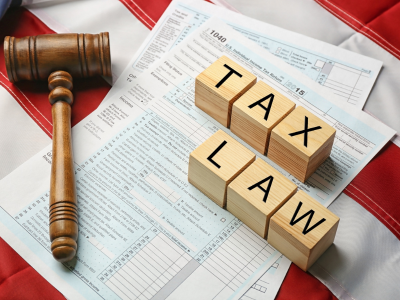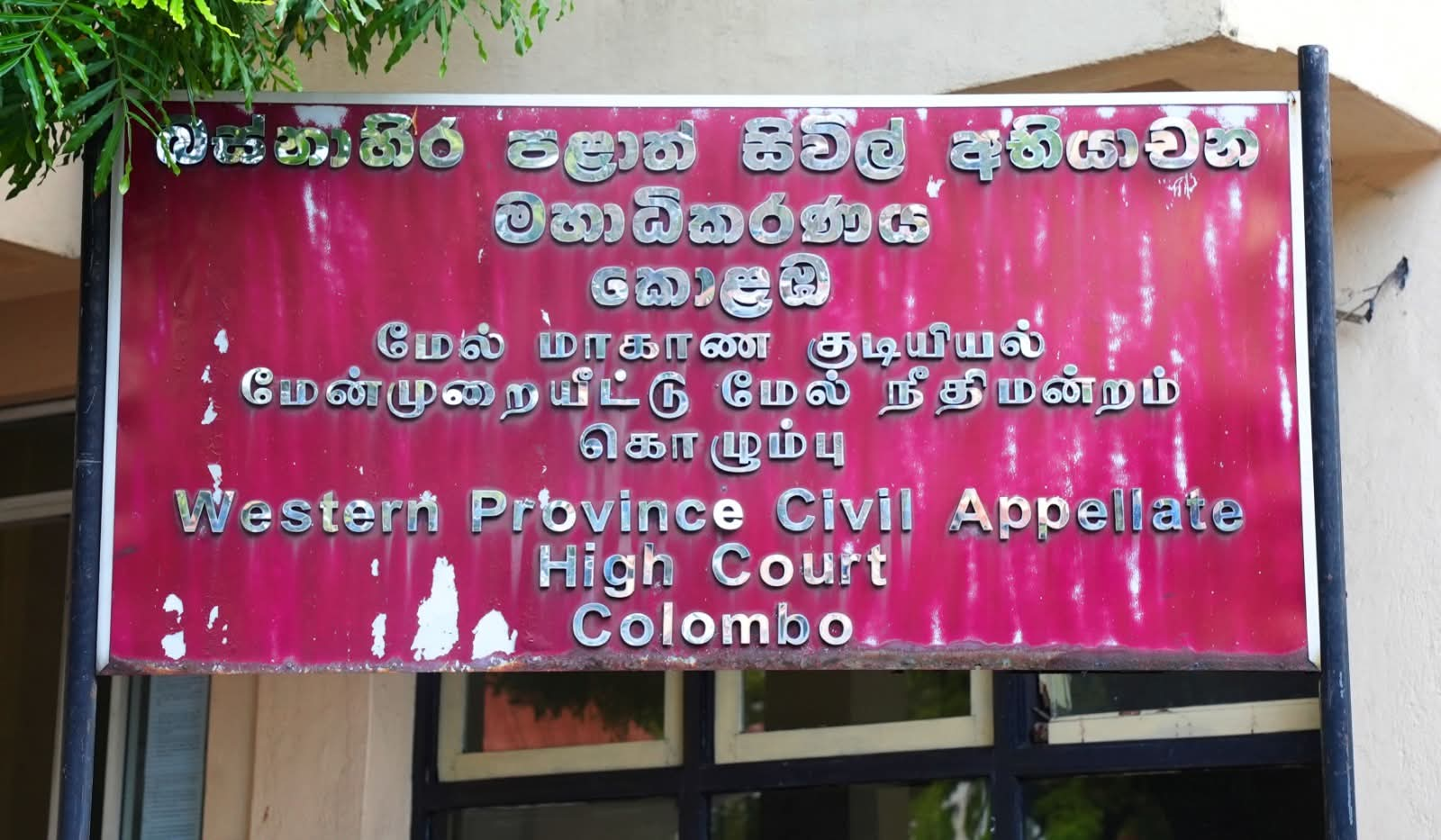In Tax Cases: Burden is on Revenue Authority to Prove Tax is Exigible
CA Clarifies Distinction between ‘Holding Company’ & ‘Investment Company’ under Inland Revenue Act

In a significant ruling, the Court of Appeal has clarified the distinction between holding company and Investment Company under Sri Lanka’s Inland Revenue Act, No. 10 of 2006. The court delivered its judgment in the case where the Appellant, Colombo Fort Land and Building PLC, a public limited liability company, challenged its classification as an investment company by the Inland Revenue Department.
The Appellant, engaged in the business of real estate, property development, and management of an investment portfolio, had submitted a tax return for the assessment year 2011/2012. However, the Department of Inland Revenue rejected the return, arguing that the company was operating as an investment company and should treat its dividend and interest income as trading profits under Section 3(a) of the Inland Revenue Act. The Appellant appealed the assessment, asserting that it functioned as a holding company, not an investment company.
The Court of Appeal, after reviewing the facts, agreed with the Appellant, ruling that the company’s activities did not meet the criteria for an investment company. The Court emphasized that an investment company typically engages in the frequent buying and selling of shares to generate trading profits, which was not the case here. Instead, the Appellant held shares for long periods, receiving dividends as passive income, which aligns more with the characteristics of a holding company.
The Court further stated that income derived from holding shares in subsidiaries, rather than frequent trading, should not be considered taxable as business income under Section 3(a).
“….In the case of CEI Plastics Limited vs. Commissioner General of Inland Revenue, the criteria followed was that, “There had been repetitive shareholding transactions which had been carried on systematically in an organized manner. These facts in my view establish that the share trading activity referred to by the Appellant constituted a “business” within the meaning of Section 3(a) of the Act.” This Court is of the opinion that there had not been such repetitive transactions on investment in shares, hence that does not constitute a “business” in terms of Section 3(a) of the Act. Even though there has been a repetitive receipt of dividend income over time, since such income is not generated by the principal business activity of the 14 CA/Tax/03/2013, CA Minutes of 02.01.2019. 11 Appellant, it should not be considered taxable income under Section 3(a).
Furthermore, this Court observes that the Appellant company has been controlling the subsidiary companies through shareholding and the Appellant has held more than 50% of the shares of the companies directly or indirectly as a group of companies.Therefore, it is the view of this Court that the Appellant company is functioning as a Holding Company rather than an Investment Company. Based on the above circumstances, I am of the view that the Commissioner General of Inland Revenue and the TAC have erred in law in failing to recognize that the Appellant company functions as a Holding Company as opposed to an Investment Company…..” – Justice S. U. B. Karalliyadde
Dividend Income Should be Recognized Under Sec. 3(e) of Inland Revenue Act
In this case, another argument centered on whether the dividend and interest income earned by the Appellant Company should be taxed as business income under Section 3(a), which applies to profits from trade or business, or as separate income under Section 3(e), which covers income from property or investment. The Department argued that the income, primarily derived from dividends and interest, should be treated as business income due to its substantial contribution to the company’s revenue.
However, the Court disagreed, emphasizing that the company’s primary purpose was real estate development and property management, not trading in shares. It concluded that the income from dividends and interest was not part of the company’s business activities under Section 3(a). Instead, such income was deemed separate and should be treated under Section 3(e), which pertains to income from investments.
“….Hence considering the main purpose of incorporating the company, I am of the view that the dividend income does not constitute profits or income from its business under Section 3(a). Furthermore, this Court observes that the dividend income can be recognized as a separate income from the primary income of the Appellant. Therefore, dividend income should be recognized under Section 3(e) and not under Section 3(a) of the Act…..”- Justice S. U. B. Karalliyadde
Dividend Income Does Not Form Part of Statutory Income
- Should be Exempted in view of Sec. 63 of IRA
The Court of Appeal has also ruled in this case that the dividend income earned by Colombo Fort Land and Building PLC, a holding company, does not form part of its statutory income under the Inland Revenue Act, No. 10 of 2006. The court found that such income should be exempt under Section 63 of the Act, which provides exemptions for dividends received by companies under certain conditions.
The Respondent- Inland Revenue Department argued that the income should be treated under Section 3(a), thereby making the exemption under Section 63 inapplicable. However, the Appellant’s counsel contended that all dividend income, irrespective of classification, should be exempted, referencing the intention of the legislature to prevent double taxation.
“….The learned Counsel for the Appellant submitted that the legislature intends to prevent the same subject from being taxed at multiple stages of the same tax chain. When a company generates profits, the tax is charged by way of corporate tax, and when distributing the dividends, the subsidiary company pays withholding tax. The argument of the learned Counsel for the Appellant is that charging tax from the Appellant on dividends in this set-up where the subsidiary companies have already paid the tax amount to double taxation…..”
“…Samarakoon J. in the John Keells Holdings PLC case (supra) analysed the case of Ceylon Financial Investments vs. Commissioners of Income (supra) which the Respondent heavily relied on in the present case in great detail and concluded that, “The majority of the 05 judge Bench classified the appellant in that case under source (e) as well as source (a) and also decided that any special provision applicable to dividends, etc., must apply.” Based on the above-mentioned circumstances, I am of the view that the CGIR has failed to interpret Section 63 accurately and the dividends earned by the Appellant do not form part of its statutory income in view of the provisions of Section 63 of the Inland Revenue Act No 10 of 2006 and that income should be exempted…..” – – Justice S. U. B. Karalliyadde
There is No Equity in a Tax
In this case, the Court of Appeal also addressed the Respondent’s argument that the Appellant company’s dividend income, which comprises approximately 71% of its revenue, should not be exempted from tax due to the impracticality of excluding such a significant portion of income. However, the Court firmly stated that taxation must adhere strictly to the letter of the law and cannot be based on equitable considerations.
“…Further, the Respondent argues that the dividend income of the company is approximately 71% of its revenue and it would be impractical to exclude a major part of income from tax liability. However, this Court is of the view that if the statute does not provide for a tax liability, this Court cannot impose such beyond the letter of law.
In Partington vs. Attorney General19 Lord Cairns said, “If the person sought to be taxed comes within the letter of the law he must be taxed however great the hardship may appear to the Judicial mind to be. On the other hand, if the Crown seeking to recover the tax cannot bring the subject within the letter of the law the subject is free however apparently within the spirit of the law the case might otherwise appear to be. In other words, if there be admissible in any statute what is called an equitable consideration certainly such a construction 18 TAX 26/2013, CA Minutes on 16.03.2022 19 (1969) LR 04 HL 100 at page 122 is not admissible in a taxing statute where you can simply adhere to the words of the statute”.
Hence as it was mentioned hereinbefore, there is no equity in a tax. Further, in W T Ramsay vs. CIR20 Lord Wilberforce held that, “A subject is only to be taxed upon clear words not upon “intendment” or upon the “equity” of an act.” – Justice S. U. B. Karalliyadde
In Tax Cases: Burden is on Revenue Authority to Prove Tax is Exigible
“In Kanagasabhapathi vs. Commissioner General of Inland Revenue, it was observed that “in tax cases, it is always necessary to remind oneself that when it is sought to impose a tax on the subject, the burden is always on the revenue authorities to prove that tax is exigible.”
Case No: Case No: C.A. (Tax) 20/2022 [Decided on 24.10.2024]
Before: S. U. B. Karalliyadde, J. Mayadunne Corea, J.










